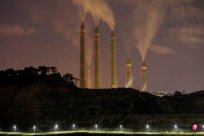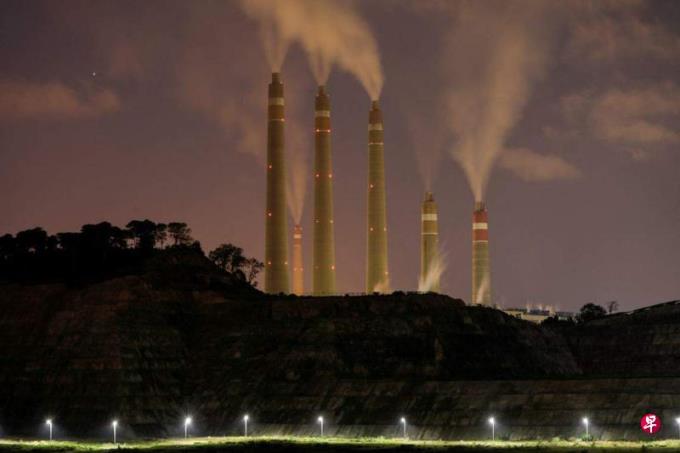
The final agreement of the current UN Climate Change Conference calls on the world for the first time to get rid of fossil fuel. How can this be used to respond to climate change and air pollution?What does the energy transformation of Southeast Asian countries mean?
With the gradual rise of global temperatures, the extreme climate in various places is becoming more and more common. Whether it is extreme high temperature, wildfire, or air pollution caused by fossil fuel, it has a profound impact on people's health and living environment.
A research report released by the British Medical Journal in November shows that 5.13 million people are estimated in the world every year due to air pollution caused by fossil fuel.The World Health Organization regards air pollution as the world's "the biggest environmental threat to human health."
The greenhouse gas generated by the burning fossil fuel is also the main cause of climate change.WHO pointed out that climate change directly leads to disasters such as heat waves, wildfires, floods and tropical storms, and triggers humanitarian crisis. The scale, frequency and strength of these climate events are intensifying.
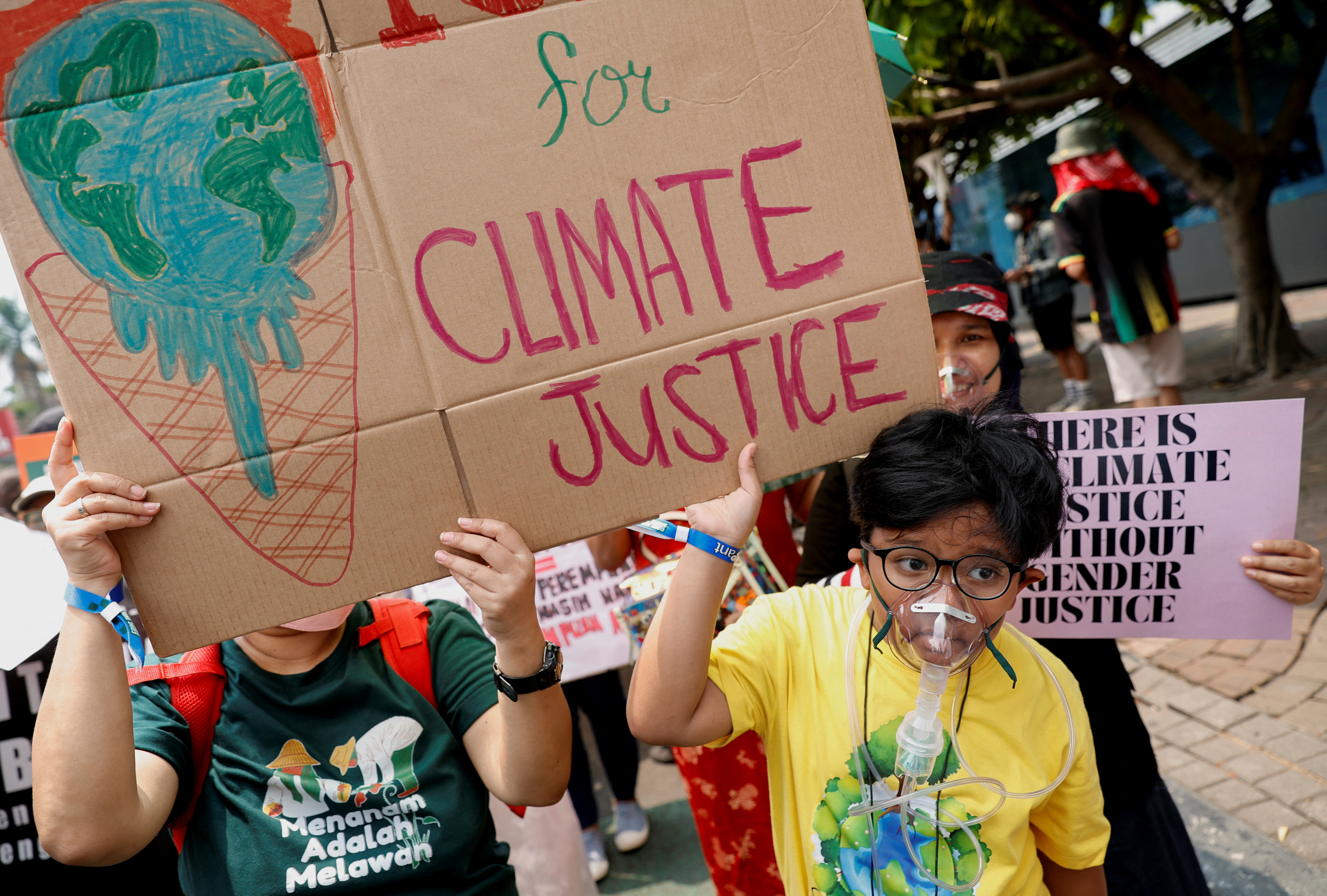 />
/>
Experts urge all countries to take action and gradually eliminate fossil fuels to respond to climate change and air pollution.
After the 28th UN Climate Change Conference (COP28) held in Dubai this week, after gradually eliminating fossil fuels to negotiate, it finally reached a historic agreement on Wednesday (December 13).Promoting the transformation of the energy system transformation away fossil fuel, and accelerate the operation in this critical 10 years in order to achieve scientific and zero emissions by 2050. "
In addition to the first mention that it is necessary to get rid of fossil fuel, the agreement also calls on to accelerate the reduction of the use of coal and allow the world to reduce the amount of greenhouse gas by 43%compared with the level of 2019 by 2030, as a target of net zero emissions by 2050 by 2050Part of the part.
Nithi Nesadurai, director of the Southeast Asian Climate Action Network and regional coordinator, said in an interview with Lianhe Zaobao: "This agreement sends out a clear and strong signal to the fossil fuel industry and producer, requiring them to start fairnessThe transformation process gradually eliminates fossil fuel. "
The non -governmental environmental organization climate operation network was established that year, consisting of more than 1,900 civilian social organizations around the world, and aims to jointly cope with climate change.
Southeast Asian countries that have been announced to achieve net zero -emissions between 2050 and 2065, respectively, have also played a guidance, urging countries to formulate specific plans to gradually eliminate fossil fuels and really move towards the target.
However, Neisadle also pointed out that there are many loopholes in the agreement, including measures to formulate measures for the rights of vulnerable groups, women and children, and indigenous peoples that failed to ensure the protection of energy transformation.Proposal of carbon capture and storage, and nuclear energy proposed in the agreement is a "false plan", which will weaken countries' concentration of gradually eliminating fossil fuels.
Experts: The biggest vulnerability of the agreement is funding and specific implementation plan

The biggest vulnerability, from the perspective of Needale, is a plan for funding and specific implementation.
To eliminate fossil fuels, switching to renewable energy requires a large amount of funds to develop new technologies, while funding to social and enterprise transformation.In this regard, this climate conference is not without any achievements.
For example, 130 countries have signed agreements so far, promising to increase global renewable energy production capacity by 2030 and double the energy efficiency; COP28 also raised more than $ 85 billion (about 1127 for various climate action projects (about 1127The funds of 100 million yuan), of which the newly established UAE's 30 billion US dollar climate fund "ALTERRA", will be partially used to assist developing countries to promote emission reduction projects.
The "Just Energy Transition PartnersHip (JETP) (JETP) aimed at helping emerging economies to accelerate energy transformation.In developed countries, it promises to provide tens of billions of dollars to tens of billions of dollars climate financing and gifts for developing countries, helping high carbon emissions, and developing clean energy projects with renewable energy potential and promoting the process of decarbon.
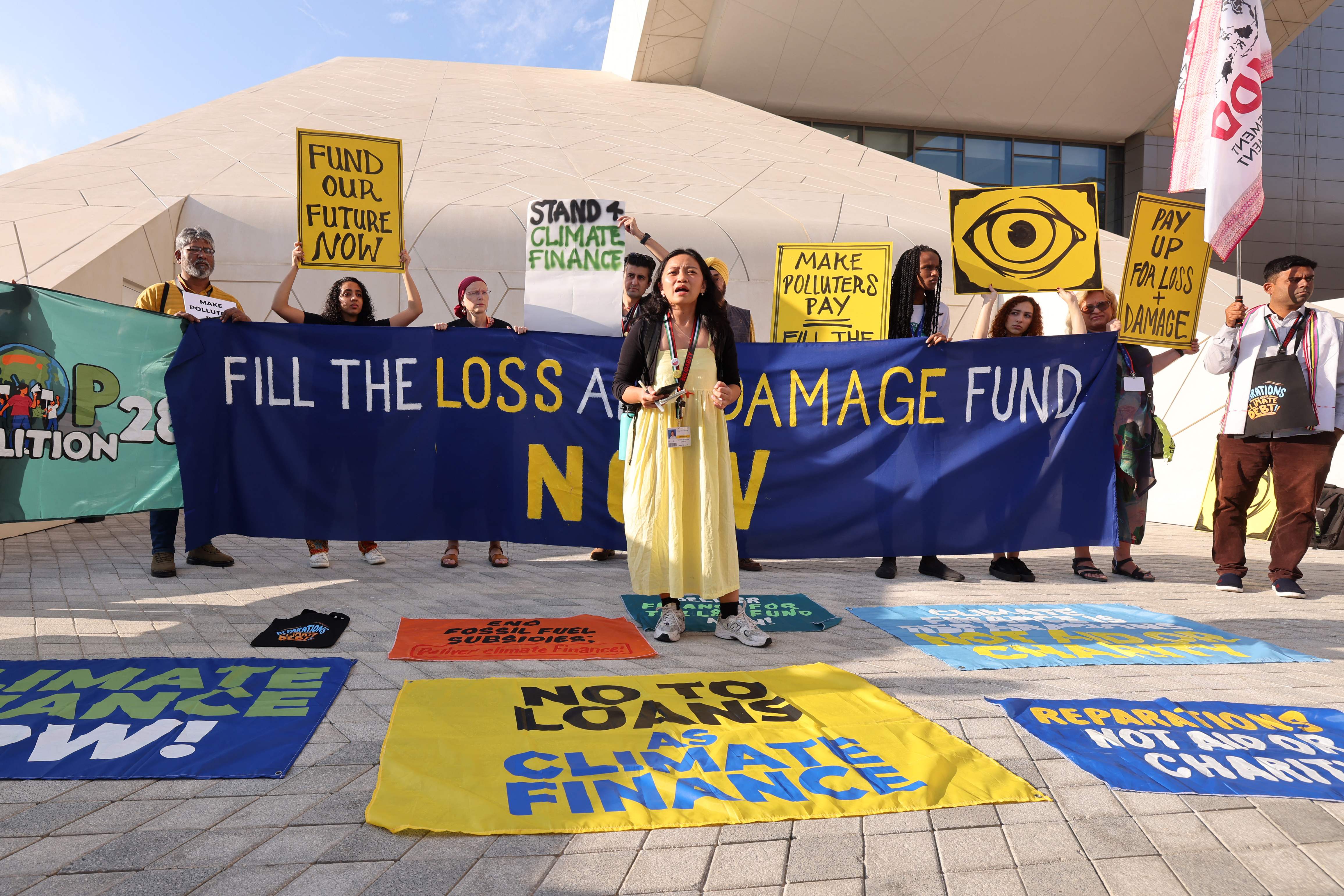
There are currently four countries -Indonesia, Vietnam, South Africa, and Senegal signed related agreements with developed countries; Indonesia and Vietnam have recently cooperated with the current climate conference, and they also announced the energy transition blueprint under the agreement, and the update reduced reduction.Line targets.
Neisadle speculates that the Philippines that seriously depend on coal may be the next Southeast Asian country to join Jetp.
However, these individual plans only provide programs for promoting emission reduction and energy transformation only in small areas.How to implement these tasks worldwide is not mentioned in the COP28 protocol."The text does not mention the resources required by developing countries to implement (emission reduction and transformation) plan, including the capital, capacity building and technology transfer based on the principle of equality.Global rich countries in the world have escaped the responsibility. "
Needale puts hope at the next climate conference in Azerbaijan."These defects, especially the supply of funds, must be the focus of the 29th UN Climate Change Conference. The next conference has been regarded as the" financing climate conference "."
Insufficient funding Structure is difficult to reform in Energy Reform of Indonesia
Insufficient funds and complex energy structures have made Indonesian energy transformation blueprints, and the challenges are heavy, and the national elections have further increased variables.
According to the JETP agreement, international partners promise to fund Indonesia to $ 20 billion and assist Indonesia to reduce their dependence on fossil fuel. Indonesia promises to achieve net zero emissions in the field of power generation.
Indonesia released the "Comprehensive Investment and Policy Plan(Comprehensive Investment and Policy Plan, referred to as CIPP), the goal is to further reduce the carbon emissions in the power field in the power grid in the field of power from the previous 290 million metric tons to 250 million metric tons, andIncrease the ratio of renewable energy from 34%to 44%.
Grant Hauber, an Asian strategy energy economic consultant at the Institute of Institute of Energy Economy and Financial Analysis of the American Think Tank Energy Economic and Financial Analysis, said in an interview that CIPP is a good start to formulate a long -term energy transformation plan for Indonesia, but it is not easy to implement it.Essence

According to Indonesian media reports, the Minister of Energy and Mineral Resources Tarov stated that there are two key items under the JETP plan, namely, the CIREBON-1 coal power plant in Western Java Province seven years in advanceRetired in 2035 and built the Java -Sumatra transmission network.
Early retirement of coal power plants and other fossil fuel facilities, although it helps to reduce emission reduction, it depends on whether the funds are in place.According to Agence France -Presse, Indonesia claims that at least 97.3 billion US dollars of investment is needed to promote energy transformation and emission reduction, which is equivalent to nearly five times the amount of funding in Jetp.
The funds provided byJETP are mainly loans, and the donations are very small, which also makes Indonesia worry that it will increase national debt burden.Indonesian President Zoko said in a speech at Stanford University last month that climate funds "should be more constructive, not provided in the form of debt, which will only increase the burden on developing countries."
Melinda Martinus, chief researcher at the Southeast Asian Climate Change Project at the Easov Issa East South Asian Research Institute in Singapore, pointed out in an interview that due to the shortage of funds, the Indonesian government has lowered the elimination of coal -fired power generation in the new plan.Objective -from 2030, the 5.2 GW (GW) coal -fired power generation volume was eliminated by the coal power plant to decrease by 1.7 Gava by 2040.
The high -power industry self -set coal power plant makes Indonesia's reform more complicated
The "private" field in Indonesia-the Captive Coal-Fired Plant also makes Indonesia's reform more complicated.The self -contained coal power plant is a self -deployed power plant for high -power consumption industry. Because it does not connect to the State Grid, it is difficult for officials to count the actual scale and carbon emissions.
Matinas pointed out that the carbon discharge level proposed by CIPP is misleading, because the carbon emissions of Indonesia will definitely exceed the limit after the self -brought coal power plant.
Hao Bai said: "It is a big problem for self -proving coal electricity. It may destroy Jetp negotiations. After all, if the efforts do, they will be offset by their own coal power. Which green investor will be willing to invest funds into the CIPP project?"
To solve the problem of funding, Haobo believes that Indonesia must actively promote independent generators, including equity investors and debt financing providers, agreed to shorten the return period and lead new investment to more environmentally friendly projects, becoming out of the way out, becoming out offered, becoming out of the way outPart of the carbon solution.
Priority to promote key items, and setting a stable and transparent selection system is also crucial.Haobo said: "We still don't know which coal power plants in the power grid have the highest operating efficiency, the maximum emissions or the highest cost. Provide this information will help people better understand the feasibility of shutting down the coal power plant or maintain operation." The central government provides a guarantee to reduce the risks that local politics may bring to the project, including land rights, and believe that it can also increase confidence in private companies to participate in the Indonesian energy transformation project.
Election or a new energy project opportunity
Indonesia will hold a national election in February next year. Many investors are currently looking at their attitudes and are unwilling to invest.Hao Bai bluntly stated that the election "is likely to affect matters related to approval, license or license".
But he also believes that during the election, it can still be a good time to promote preparations, such as land measurement, bidding documents, and formulating contracts, because after the winner is superior, he will also hope that political achievements will soon be preached.
Experts: Although Vietnam has a political will to transform the transformation plan, it still lacks execution.
 />
/>
With COP28, Vietnam announced the new energy transformation blueprint on December 2 -Resource Mobilization Plan (RMP), which lists how to promote the transformation of renewable energy, reduce dependence on coal, display energy to promote energy sourcesPolitical will of transformation.
According to the plan, Vietnam will reduce the capacity ratio of coal to power generation in 2030 from 31%in 2020 to 20%; by 2030, renewable energy will account for at least 33%of the total power generation to 2050It accounts for at least 55%.
Developed countries have promised to provide $ 15.5 billion in funds for this plan through Jetp, most of which are commercial loans provided by market interest rates within three to five years.
Julia Behrens, a postdoctoral researcher at the Department of Sociology at the University of Bileeld, Germany, said in an interview with Lianhe Zaobao that RMP and Vietnam's power development plan showed the political willingness of the Vietnamese government to promote energy transformation."This can accelerate legal regulations, capacity building, decision -making process and official cooperation."
But she also said frankly: "RMP alone is not enough to explain whether Vietnam can achieve its climate and energy transformation goals. The situation we saw in Vietnam in the past was that the policy was very good, but it was not enough to implement it."
In addition to the insufficient funds and the incomplete relevant regulations, according to Berranus, the focus of the Vietnamese government departments has different focus on energy transformation.The different opinions within the government are therefore the primary task.
In addition, the anti -corruption movement of the Vietnamese government also indirectly affects the project process.Berranus said, "Many civil servants do not dare to make decisions and bear the responsibility of taking policy actions." As a result, everything must be submitted to high -level decisions of various departments to form a bottleneck.
attribute natural gas as sustainable energy to be approved
Leo Roberts, an expert in the climate think tank E3G fossil fuel transformation, criticized some of the RMP measures "worrying", including vaguely to "flexibly" to deal with coal -fired power generation, rather than eliminating coal power plants in advance.The plan also states that research should be carried out for green hydrogen, carbon capture and storage.
Roberts told non -profit news network "Climate Homepage News": "This investment plan is no longer the method of replacing coal power with clean energy that Jetp initially promised. On the contrary, it pays attention to expensive or unconfirmed technology ...… This directly destroys the speed and scale of energy transformation. "
Berranus also said that RMP's wording on the elimination of coal is weak and weak, and plans to classify natural gas and liquefied natural gas asContinuous energy is also a problem, because from a scientific point of view they are not sustainable energy.
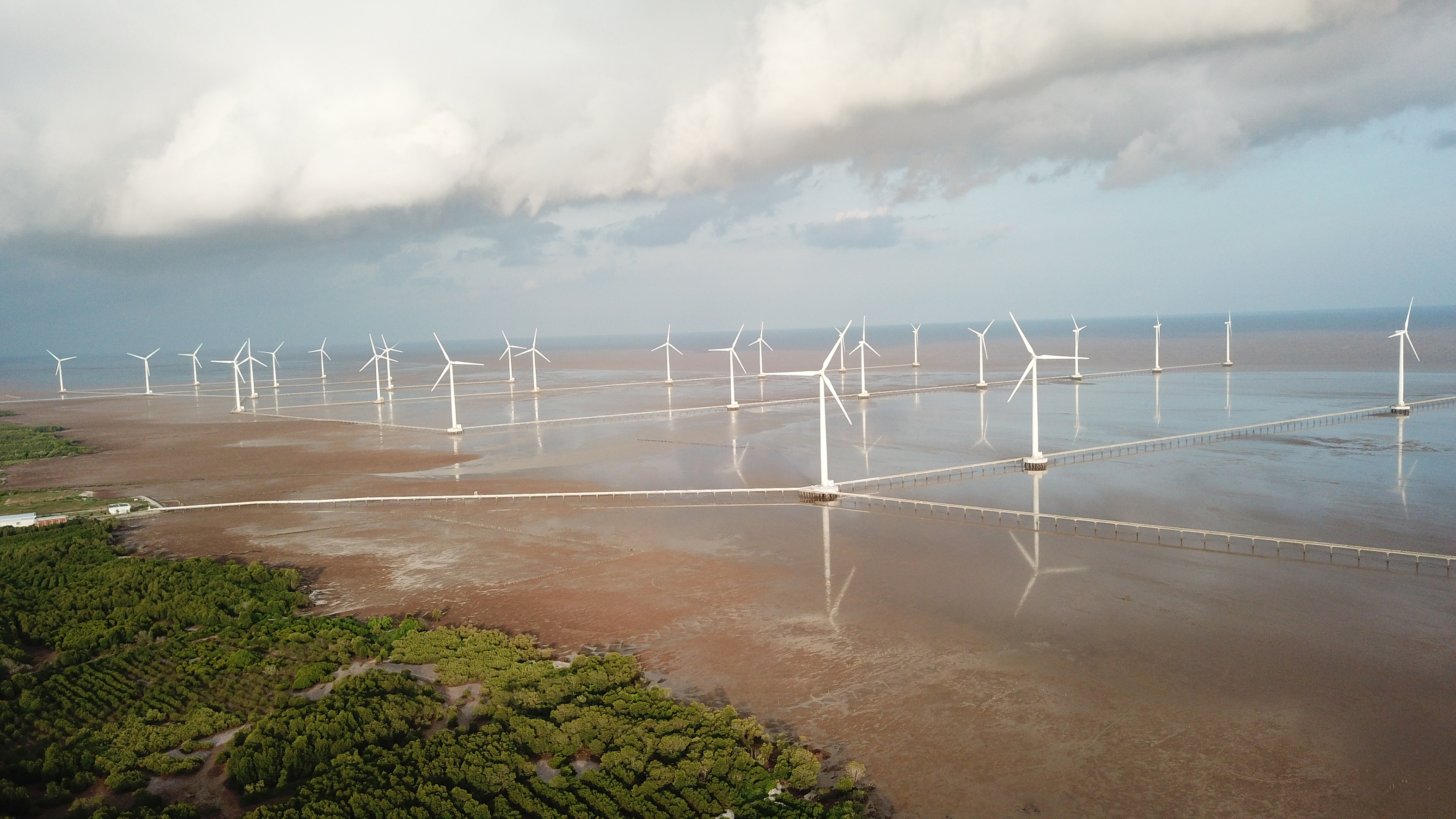
Jetp launched in 2021 has taken a trial step for funding developing countries to achieve energy transformation.However, whether Indonesia and Vietnam can successfully accelerate energy transformation under the plan depends to a large extent on whether countries can attract private investors' capital injection and the will to promote energy transformation in the country.
As the chairman of COP28 Jobil said when closing: "The quality of the agreement depends on its execution. Speaking of it, it is better to take it ... we have to take the necessary steps and transform the agreement into practical action."

